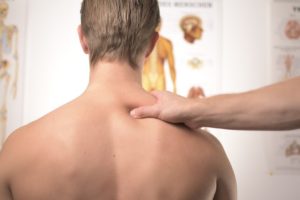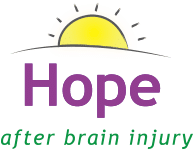Finding the best treatments for post-concussion syndrome after a mild traumatic brain injury could involve evaluating rehabilitation options from both traditional and alternative physicians. Post-concussion syndrome often becomes an invisible diagnosis with no one size fits all treatment approach. Early-stage symptoms of post-concussion syndrome such as headaches, sensitivity to lights, nausea, dizziness, and fatigue may come and go during the first few days and weeks after an injury. Persistent symptoms can worsen over time; for some patients, the problem can become severe, leaving them unable to carry on with their regular busy schedules or pre-injury responsibilities.
Currently, the Mayo Clinic’s website states, “There is no specific treatment for post-concussion syndrome. Your doctor will treat the individual symptoms you’re experiencing.” Many doctors often tell patients who suffer a head injury to rest, and their symptoms should lessen in time. No two brain injuries are alike, and although each patient may share similar symptoms, recovery from a concussion might be easier for some or more difficult depending on many factors. With no concrete evidence of brain injury seen in many medical images, an invisible head injury may still have an epicenter. The root of the microscopic damage could be the link to other brain injury conditions contributing to post-concussion symptoms. Age, gender, pre-injury health history, and even our genetics could also add to the severity of post-concussion syndrome and its long-term effects.
The topic of post-concussion syndrome is growing as new brain injury therapies and diagnostic tools appear in recent headlines. The release of innovative blood tests used to detect mild traumatic brain injuries makes its way into mainstream TBI diagnostics worldwide. Research developments generate a further understanding of the vagus nerve, and the gut-brain axis associated with traumatic brain injuries. Remarkable advancements in neuro-optometric and neuroplasticity therapies are far surpassing patient recovery results obtained through traditional methods while offering new hope to those who have suffered for years. The latest information in the field of Functional Health features Functional Chiropractic Therapy and Functional Neurologists who “work to re-connect the patient’s dysfunctional pathways through specific stimuli to improve the brain’s functionality and reduce persistent post-concussion symptoms.”
The reality is that medical breakthroughs are known to be a slow process in making their way into the mainstream health field. Unfortunately, despite the encouraging advancements, post-concussion syndrome continues to remain an elusive target for patients and their doctors to hit.
 In addition to the possibility of visual, vestibular, and sensory problems, physical damage to the neck, spine, and upper back may be another factor contributing to the severity of patients’ symptoms. Treatments for post-concussion syndrome such as osteopathic manipulations, chiropractic services, cranial-sacral therapy, acupuncture, and deep-tissue massage are some of the most sought after therapies for pain relief and maintaining structural stability. Patients with soft tissue injuries could benefit considerably from regenerative medicine treatments such as prolotherapy. It is characteristic of ligaments and tendons near the head to be torn or overstretched in accidents associated with concussions.
In addition to the possibility of visual, vestibular, and sensory problems, physical damage to the neck, spine, and upper back may be another factor contributing to the severity of patients’ symptoms. Treatments for post-concussion syndrome such as osteopathic manipulations, chiropractic services, cranial-sacral therapy, acupuncture, and deep-tissue massage are some of the most sought after therapies for pain relief and maintaining structural stability. Patients with soft tissue injuries could benefit considerably from regenerative medicine treatments such as prolotherapy. It is characteristic of ligaments and tendons near the head to be torn or overstretched in accidents associated with concussions.
Medical science has come a long way in the past ten years with understanding how the brain works, how it heals, and how it changes. There is tremendous room for growth and opportunities for medical improvements aimed at helping patients achieve optimal healing from traumatic brain injuries. Since post-concussion symptoms can be wide-ranging, working with medical experts who specialize in the successful treatment and diagnosis of post-concussion syndrome will ensure patients receive a more in-depth assessment to discover the root cause of PCS, followed by a customized treatment plan for rehabilitation. An overall observation of perseverance and determination were key traits for many traumatic brain injury survivors who have shared stories of their battles with post-concussion syndrome and the treatment modalities that finally brought them relief.

Leave A Comment
You must be logged in to post a comment.